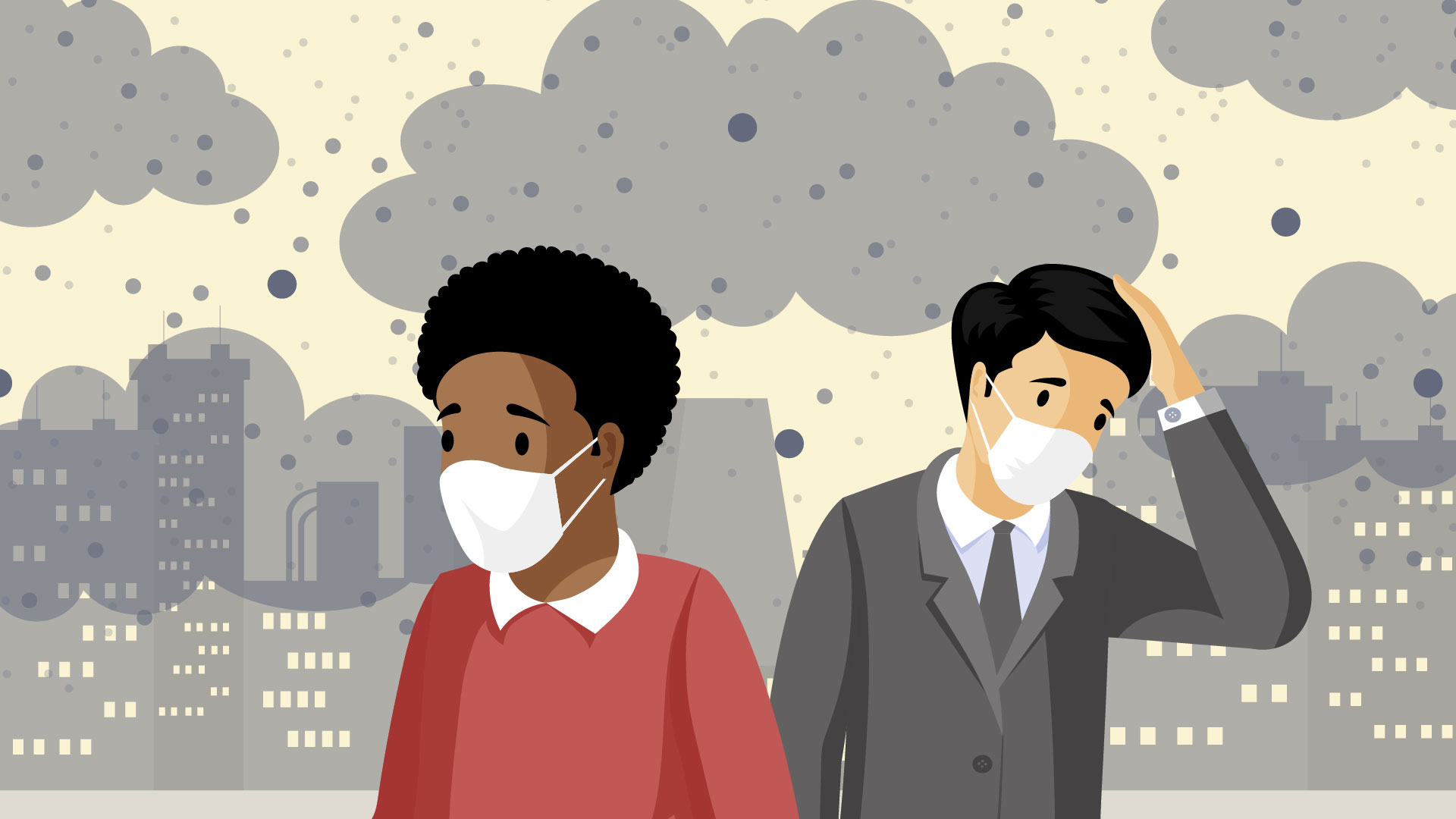While we are all understandably focused on deaths due to the coronavirus pandemic (Covid-19), it is worth remembering that the number one cause of mortality in this country is cardiovascular disease. Those who suffer from cardiovascular disease are at a particularly high risk for Covid-19 complications. Even without Covid-19, the CDC estimates that around 647,000 Americans die from heart disease each year.
To lower our cardiovascular disease risk, we have been urged to eat a healthy diet, exercise, and, when needed, take medications to reduce our cholesterol and blood pressure. How often are we told to pressure our elected officials to clean up the air we breathe? When we suffer myocardial infarctions (heart attacks) or strokes, how often do we consider air pollution as one of the causes of our disease? And yet, researchers have known for many years that exposure to air pollution, specifically particular matter less than 2.5 microns (PM2.5), is an important risk factor for cardiovascular disease. Air pollution doesn’t just affect our lungs!
A recent study by Perry Hystad and coworkers (2020), which involved 157,436 individuals from 21 different countries, investigated the association between levels of outdoor PM2.5 and cardiovascular disease. The data were from an ongoing cohort study, the Prospective Urban and Rural Epidemiology study, in which individual participant data have been collected for a period of fifteen years thus far. The researchers were able to adjust for a number of important variables including smoking status, education, fuel used for cooking, age, and chronic health conditions. They emphasized that their study, unlike most previous studies in this area, looked at individuals not only from high income countries, but also from middle and low income countries such as India in which PM2.5 levels are particularly high.
The researchers calculated the population attributable risk of cardiovascular disease due to PM2.5, which is an estimate of the percentage of cases that would be avoided if PM2.5 was reduced. They reported that the attributable risk of stroke was 19.6 percent, the attributable risk for myocardial infarction was 8.4 percent, and the attributable risk for cardiovascular mortality was 8.3 percent. Given the large number of cases of cardiovascular disease, a reduction of 8.3 percent would mean a longer life for a large number of people.
It seems every week we learn of new studies that document the toll dirty air has on our health. Our elected officials need to take steps not only to protect us from the Covid-19 virus, but also to protect us from polluted air.
References:
Brook RD et al. (2010). Particulate matter air pollution and cardiovascular disease: an update to the Scientific Statement from the American Heart Association. Circulation. 121:2331-2378.
https://www.cdc.gov/heartdisease/facts.htm#:
Hystad P et al. (2020). Associations of outdoor fine particulate air pollution and cardiovascular disease in 157,436 individuals from 21 high-income, middle-income and low-income countries (PURE): a prospective cohort study. The Lancet Planetary Health. 4:e235-e245.


